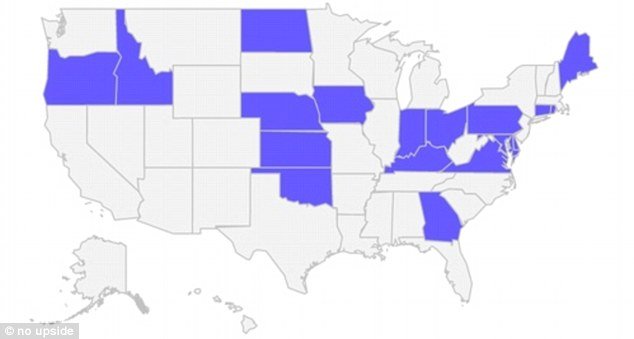
Blogger Renee DiResta got some surprising and less surprising results as part of a research into stereotypes found on Google.
Renee DiResta hit on a clever idea to find out what people think about different U.S. states.
She began typing the names into Google and used the search engine’s autocomplete function to complete the query.
So, for example, she asked “why is Georgia so” and Google’s algorithm, which tries to predict the next word based on popular searches, did the rest.
The result showed what people ask most about a state. In Indiana’s case they want to know why it’s so “boring”, and the same with Maine.
Georgia is “hot”, “racist”, and also “boring”. Oregon is “liberal”, “weird”, “rainy”, and again, “boring”. Ohio is also “boring”, but “important in the primaries”.
When Renee DiResta used the formula of “Why is Arizona so …?” the terms that popped up included “hot”, “racist”, “conservative” and “crazy”.
West Virginia also didn’t come out well, the top suggested search terms included “poor”, “racist”, “fat” and “weird”.
According to recently released Gallup research, West Virgina was ranked the least livable state based on low unemployment, appalling obesity rates and lack of economic growth.
For 18 states, the common search term associated with them was “boring”. Among those considered snoozeworthy included Idaho, Montana.

But Google wasn’t all negative.
When the state of Colorado was searched, autocomplete terms that appeared were: “cold”, “healthy”, “skinny” and “awesome”.
Venture capitalist Renee DiResta, a recent New York transplant to San Francisco, said in her blog about the experiment: “I started wondering, how do Americans really think about <<those people>> in other states? What are the most common stereotypes?”
“The qualitative searches were most interesting to me. There are 12 unique terms that are classifiable as <<culture/sentiment>> queries, of which ten are negative: backwards, bad, boring, crazy, dangerous, hated, racist, stupid, trashy, weird.
“There were a few redeeming positive results; Colorado, Minnesota, Texas, and Vermont are <<awesome>>, and Montana, New Hampshire, and New York are <<great>>.
“But for the most part, it doesn’t seem like we think very nice things about each other… at the very least, we’re more inclined to search for articles supporting (or related to) negative biases.
“The single most common result of all was <<boring>>, which appeared for 18 states with no particular regional concentration. Other popular terms (returned for >10 states) were <<humid>>, <<windy>>, <<expensive>>, and <<liberal>>.
“Strangely, Connecticut and Pennsylvania both returned <<haunted>>; apparently there are a lot of ghost sightings (and related walking tours).
“My favorite result of all was <<enchanting>>: New Mexico is beautiful.”
WHAT IS GOOGLE AUTOCOMPLETE?
When a user types a word into the Google search box, the autocomplete algorithm offers search terms based on what is entered.
For example, if someone starts to type “new york”, autocomplete will offer searches for “New York City”, “New York Times”, and “New York University” based on the first word.
Queries are algorithmically determined based on a number of purely algorithmic factors (including popularity of search terms) without human intervention.
Source: Support.google.com